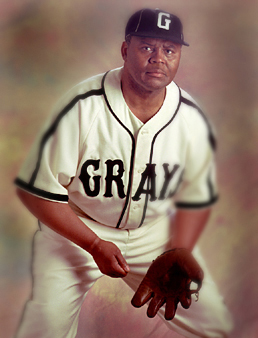|
July 8, 2002--Ron Whittington, director of the University of Delaware’s Office of Affirmative Action and Multicultural Programs, has always had an interest in baseball. 
A few years ago, he put together a slide program for his then 5-year-old daughter’s elementary school class about Judy Johnson, a player in the Negro National Baseball League and a member of the Baseball Hall of Fame.
In recent years, Whittington has developed a dramatic presentation in which he becomes Judy Johnson. This well-received theatrical production has been presented locally and around the country.
Q. Where have you performed the Judy Johnson program?
A. I have done major shows in Philadelphia, in New Castle County libraries, in colleges and schools and at the Negro League Museum in Kansas City. I will be presenting the program at the National Baseball Hall of Fame in Cooperstown, N.Y., in August.
Q. Why is Judy Johnson’s story important today?
A. Judy Johnson is one of Delaware's only baseball hall of famers. While he played in the Negro League from the early '20s to late ‘30s, he is still important because of the rich history of the Negro league and his overall contribution to local baseball. The other thing about baseball is that it is a game of tradition, and very little has changed over the years in the area of rules.
Q. What do you enjoy about presenting the program?
A. The things I like most about doing the shows are the reactions from the audience. So much is new to them, and I feel they go away with a renewed interest in that chapter of America’s sports history. I’ve also realized that people in Delaware know Judy Johnson’s name, but very few know how great a baseball player he was. The fact that Mr. Johnson was so great in his time, and the little that is known about him, reminds me that so much of black history is taken for granted.
Q. How do you research the background of a person you portray?
A. I find a topic or person that I am curious about, and then I start off by going to the libraries to see if I can read something about the person. I spend a lot of time reading and asking questions.
Q. Is there anything that you find particularly satisfying when you complete a performance?
A. The most satisfying moment in my performance is when people stay around after the show to tell me stories. If they stay, I know I have made my point.
Article by Ed Okonowicz
|

